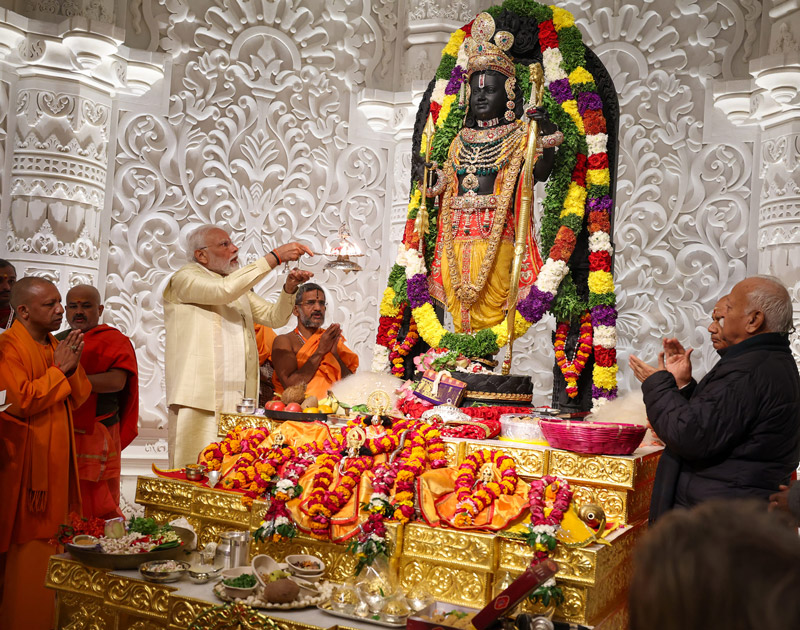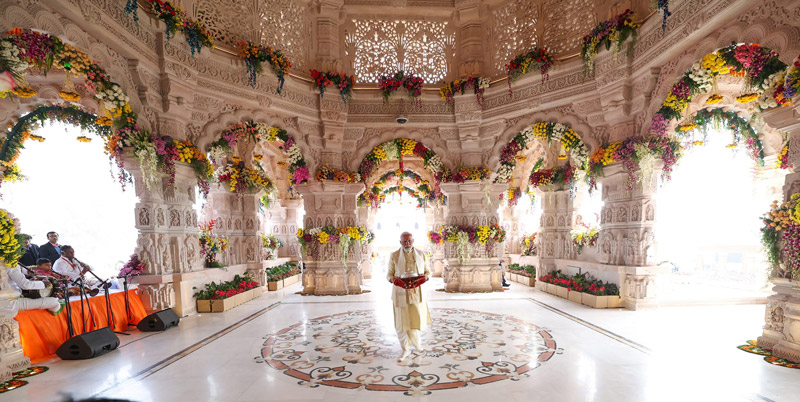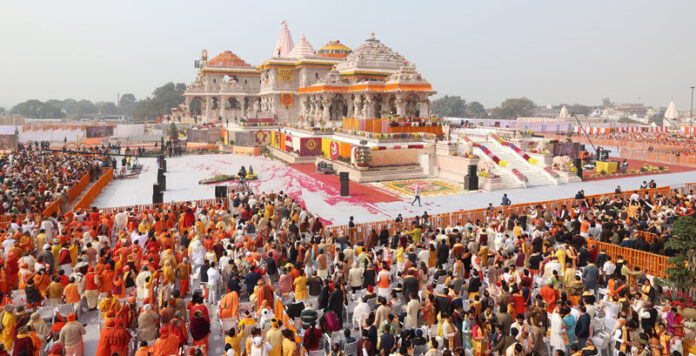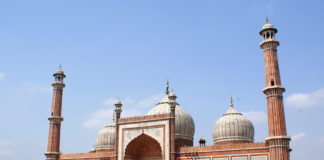By Dinesh Sharma
NEW DELHI: The consecration of the temple to Hinduism’s premier diety Lord Ram in Ayodhya on January 22 will certainly have a big impact on the collective Hindu psyche.
Whatever the politics over it, the opening of the temple will become a landmark civilizational event in India’s history and in the Hindu religion.
Built with a cost of over Rs 1,200 crore, this grand temple – which is flood-proof and quake-proof – can last over 2,500 years.
But let us come to the impact the temple consecration will have on India’s politics immediately.

No doubt, the ruling BJP has the political wind behind it. The event has crated a wave in favour of the ruling party and Prime Minister Narendra Modi is certain to win a third term when over 900 million Indians go to polls this summer.
Two things will play out in India’s upcoming general elections.
One, the BJP is trying to consolidate its votebank on the basis of HIndu cultural nationalism. Two, the Congress-led alliance called INDIA is striving to split in the opposition votes.
“The temple consecration is the major poll plank of the ruling BJP. But I think even without this issue, Uttar Pradesh is already in their pocket. The BJP won 62 out of 80 seats in India’s most significant state in the 2019 general elections. The party may do even better this time,” says Delhi-based political commentator Parsa Venkateshwar Rao Jr.


He says Modi is aiming to cross his 2019 tally of 303 seats in the 545-member Lok Sabha this time.
“I think the BJP will sail over this mark this time. The only problem in North India for them is Haryana where they won all 10 seats last time. This time the BJP may lose big in Haryana because of the farmers’ agitation. They may also not be able to sweep all the 25 seats in Rajasthan. In Bihar, it remains to be seen how the temple issue and the BJP’s break with Chief Minister Nitish Kumar’s JD(U) impact its fortunes,” says Parsa.
“It also remains to be seen whether the BJP can retain its tally of 18 seats in Bengal which sends 42 MPs to Parliament. Maharashtra is another big test for the ruling party which won 42 out of 48 seats last time in alliance with the Shiv Sena. Let us see how the Maratha factor harms the BJP this time.”
In such a scenario, the Congress-led Opposition alliance INDIA has very bleak chances of stopping Modi. In a jolt to this alliance, Mayawati has said her BSP will go it alone.
But Anil Tyagi, another Delhi-based commentator, says, “The BJP still doesn’t get 62 per cent the vote. The party is trying a create a wave and a narrative by banding about terms like Hindu renaissance, but the ground realities are very different.”
He says nine crore (90 million) Muslim votes can change the election results in a big way.
“In Uttar Pradesh where most Muslims live, they vote mostly for the Samajwadi Party. But if they feel threatened, they will vote strategically. They will vote en masse for the Congress alliance. Which can change many results,” says Tyagi.
He says the BJP got 18 crore votes in 2019. “This time, the party is trying to get anything from 21 crore to 26 crore votes so that they can cross the 400-mark in Parliament. That’s a bit far-fetched.”
On the other hand, says Tyagi, the Congress that got 14 crore votes in 2019 is trying to raise its tally to 18 crore votes by forging the INDIA alliance.
“If the Congress can pull in these many votes, they alone will get over 120 seats, denying the BJP a majority in Parliament.”
But what Tyagi says is all in the realm of speculation. We have to wait till the election results.








